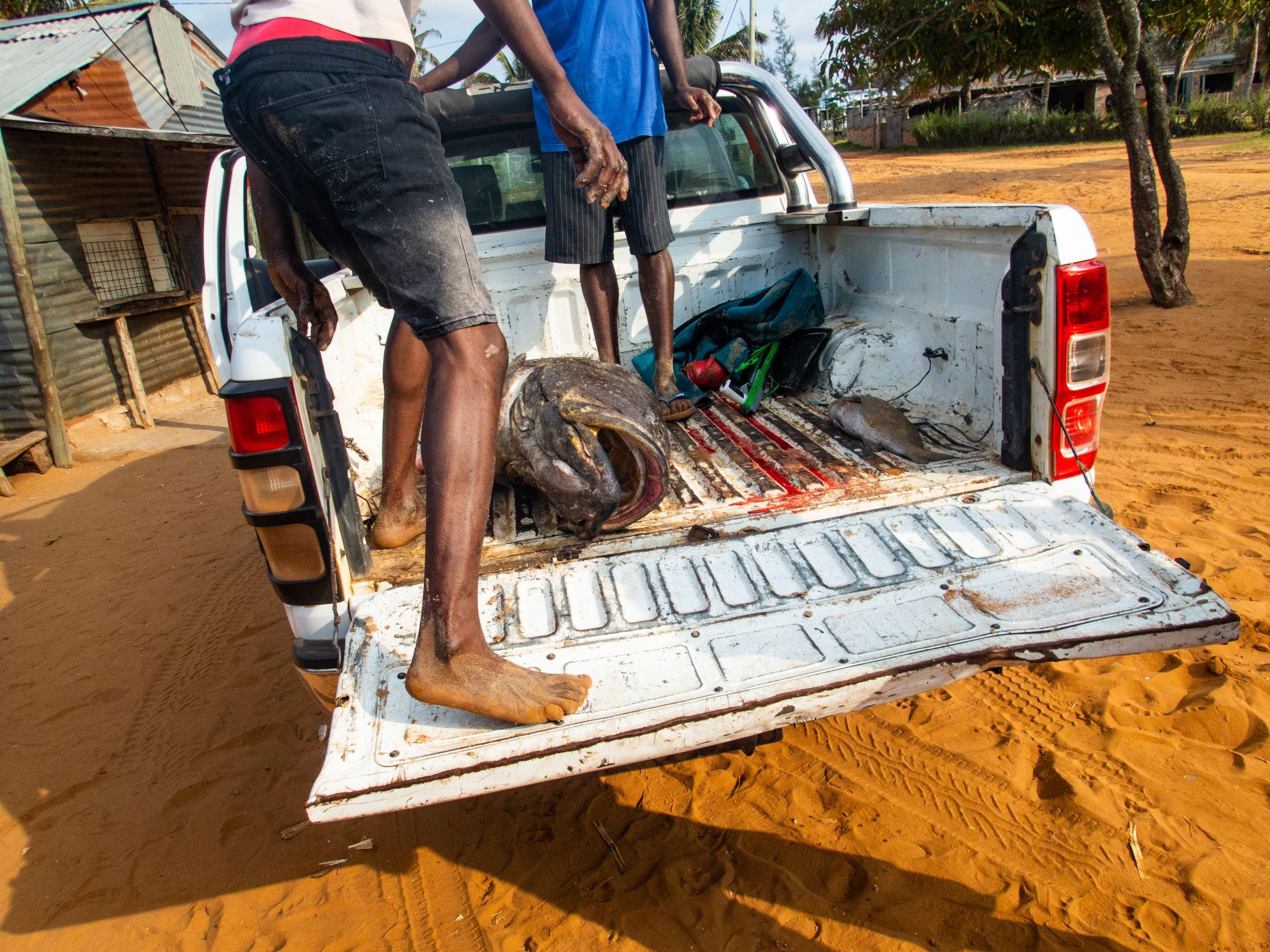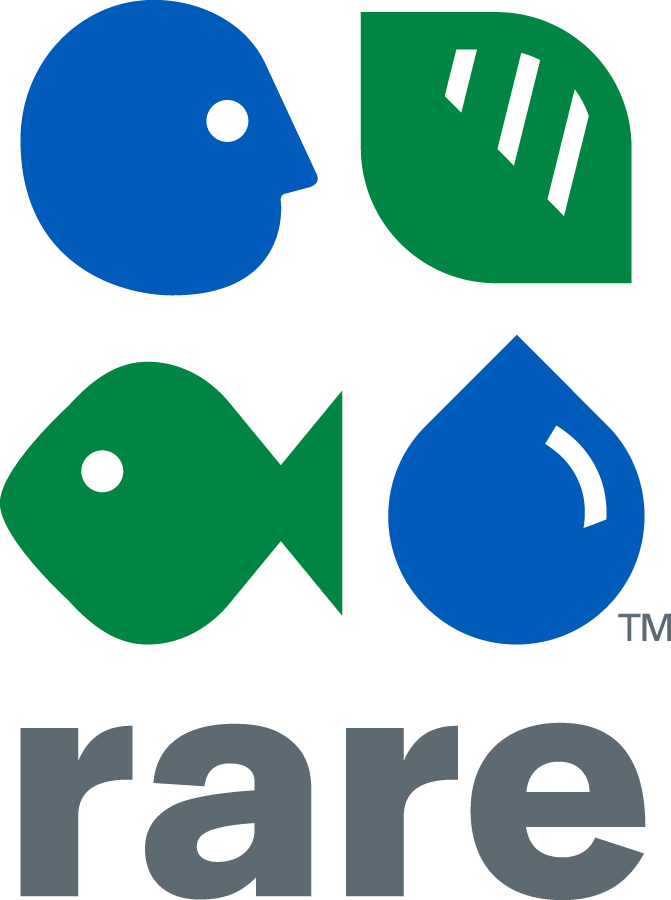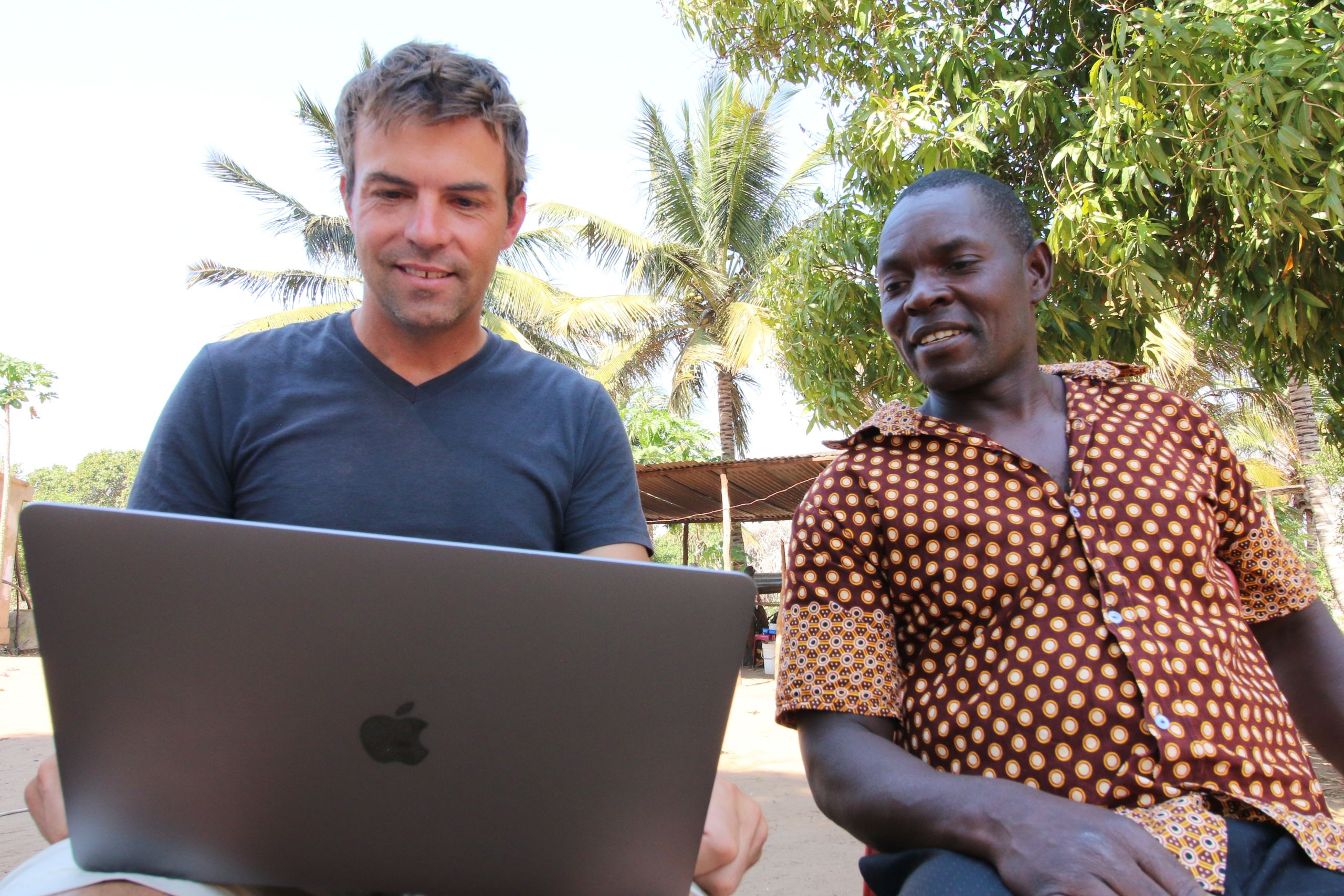
Silvino Antonio Nhocuane, “Silvino”
This is Silvino, a fisher and a father living in Závora, Mozambique. His photographs offer a rare look into the daily, and sometimes dangerous, life of his fellow fishers along the Wild Coast.
Silvino liked to photograph his fellow fishers. The day’s calm seas capture the fishers looking at ease onto the water. Despite this snapshot, Silvino explains that Závora’s fishing boats are often overcrowded with people and gear, and unpredictable weather patterns regularly test their rickety boats. On a daily basis, he explains, and for long stretches of time, fishers risk the unknown to catch fish for food and income.
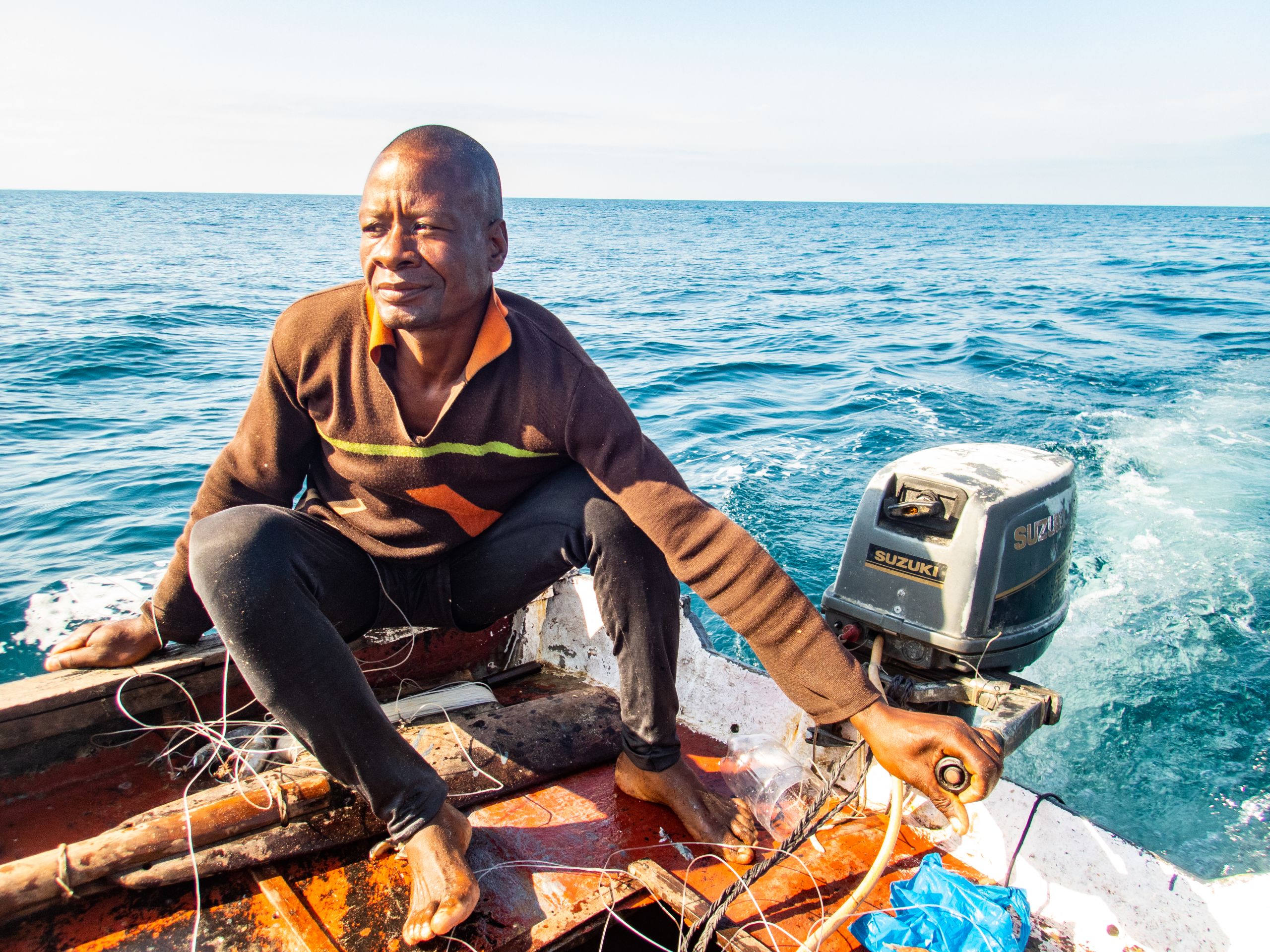
Just off of Závora’s coast is one of the world’s biggest humpback whale calving areas. Tourists flock to Závora to witness this annual spectacle. Silvino took a moment to capture a humpback spyhopping nearby. He expressed great reverence and awe for these whale sightings, sharing that he never tires of seeing the whales up close.
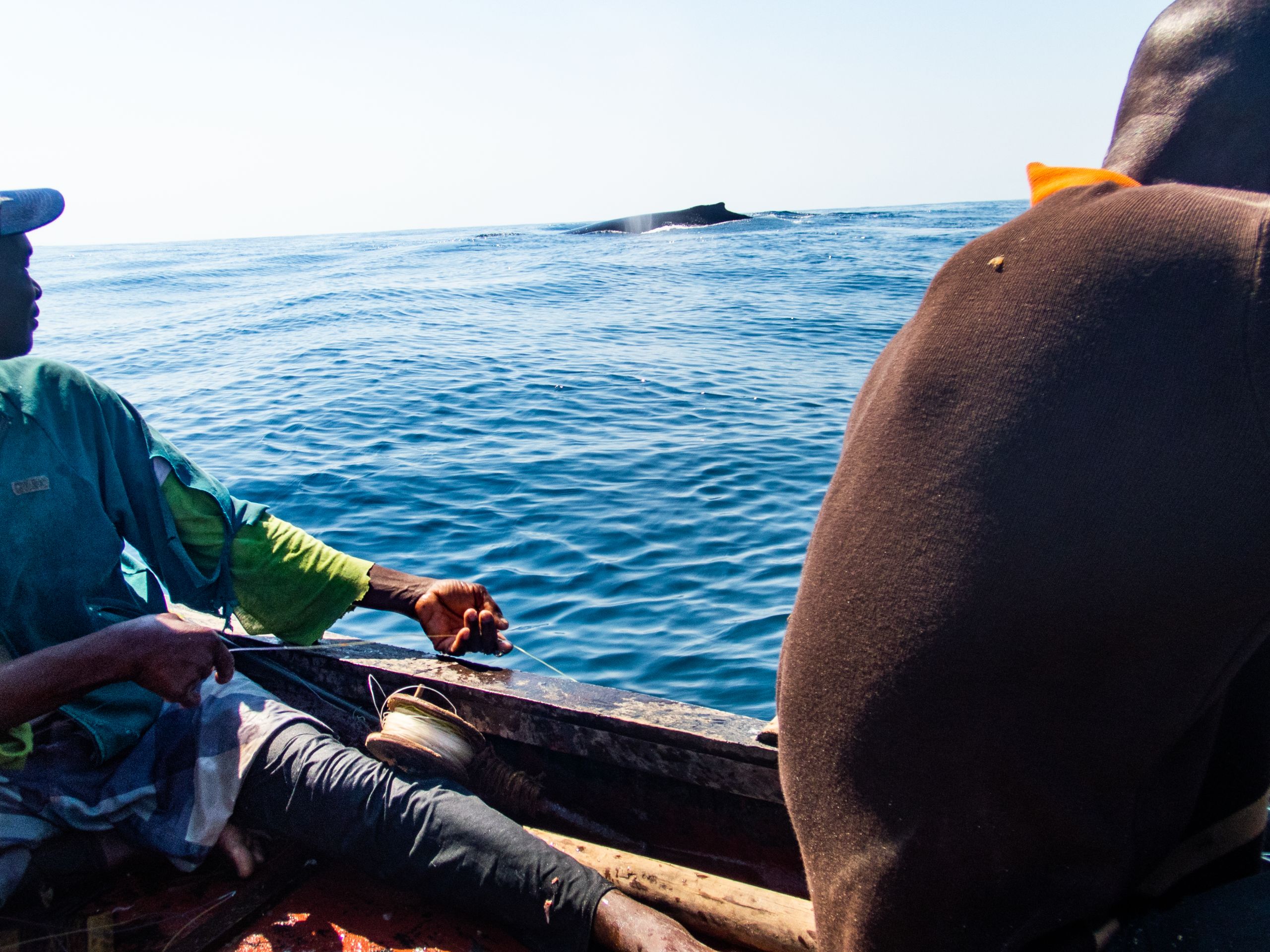
Silvino’s family, such as this female relative, relies on the fish he catches for sustenance and for income. As Silvino explains, Závora’s fishers have three markets: a local subsistence market, buyers and brokers linked to markets in Maputo, and local economic markets for Závora's high-season lodges. Smoking the fish is a typical activity for daily sustenance.
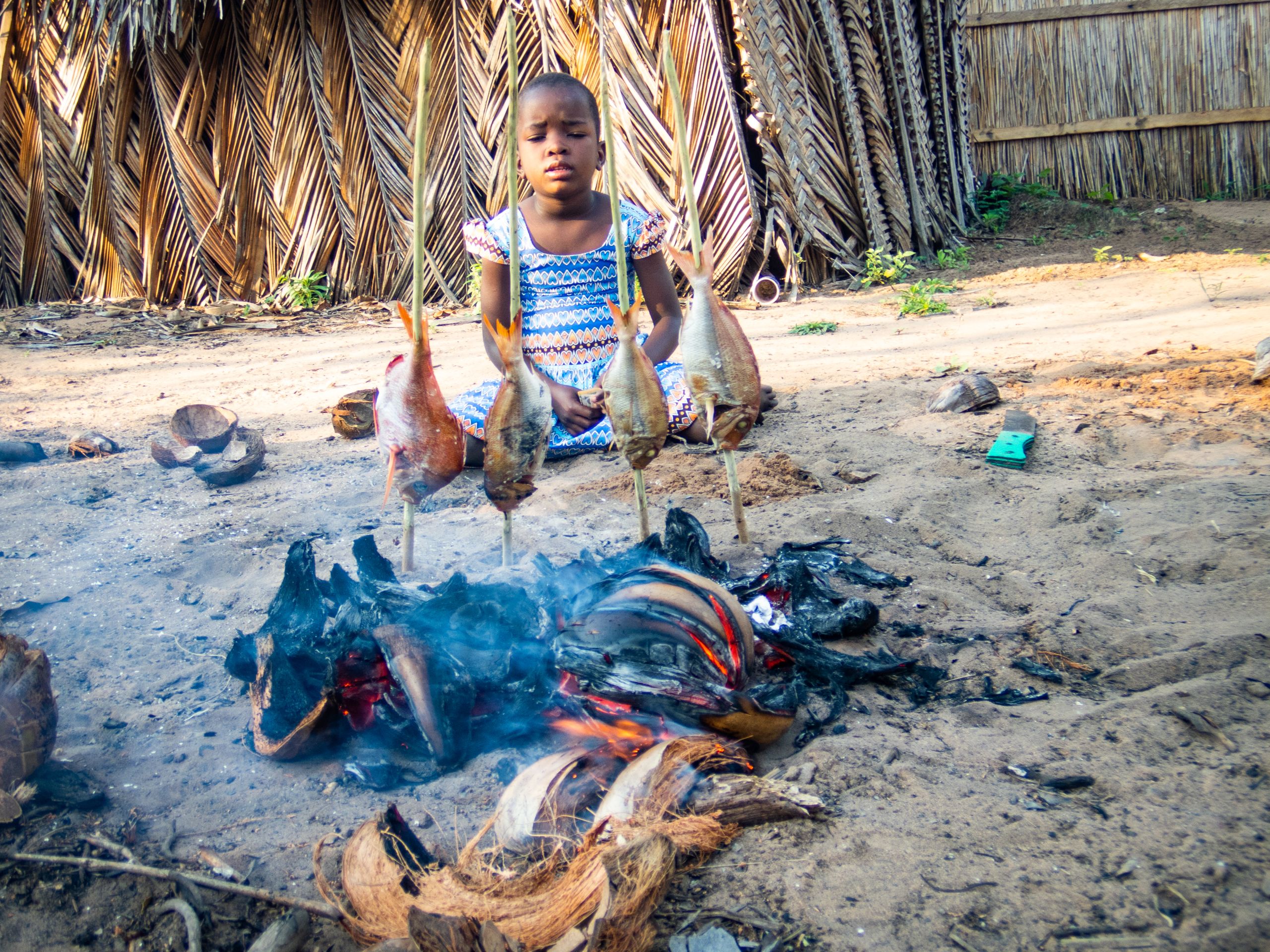
Fishers unload a large grouper. When Silvino presented this photo to the fishing community, many were not only upset that this fish was caught, but that Silvino captured the moment. Diving is important to Závora’s tourist industry, with most divers determined to see big grouper fish. Surfacing contested photos like these often illustrates the many challenges and opinions fishing communities face in weighing the costs and benefits of collectively participating in sustainable fisheries management.
